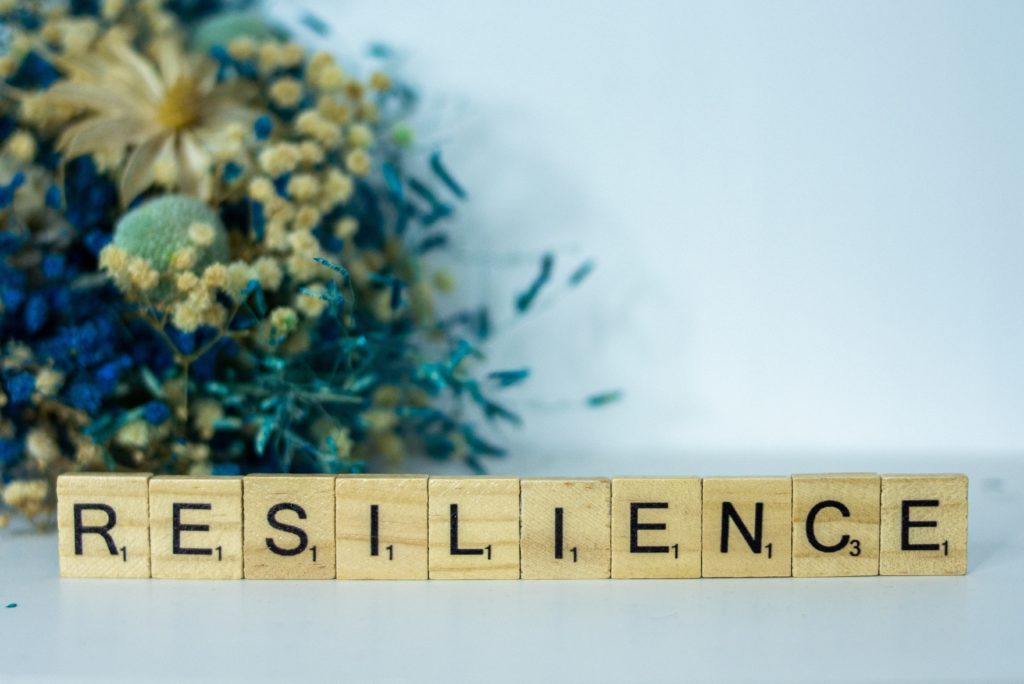
Unlocking Resilience: How to Cultivate Mental Strength in Challenging Times
Life is a journey full of highs and lows, and while the highs bring joy and fulfillment, the lows often test our mettle. The ability to navigate through challenges with […]
Life is a journey full of highs and lows, and while the highs bring joy and fulfillment, the lows often test our mettle. The ability to navigate through challenges with grace and bounce back from adversity is a quality known as resilience. Just as a tree bends in the wind but doesn’t break, cultivating mental resilience allows us to weather life’s storms without losing our strength. In this article, we’ll delve into the art of unlocking resilience and offer practical strategies to help you cultivate mental strength during challenging times.
Understanding Resilience: The Power Within
Resilience is not an innate trait but a skill that can be developed over time. It’s the ability to adapt and recover in the face of adversity, setbacks, and stress. Just as physical exercise strengthens our bodies, practicing resilience enhances our mental and emotional well-being. Here’s how you can unlock the power of resilience:
1. Embrace Change as an Opportunity: Life is constantly changing, and embracing change with an open mind can enhance your resilience. Instead of resisting change, view it as an opportunity for growth and learning. Flexibility in your thinking and approach helps you navigate transitions more smoothly.
2. Foster a Growth Mindset: A growth mindset entails believing that challenges are opportunities for growth rather than threats to your abilities. Embrace setbacks as learning experiences that can propel you forward. This mindset shift encourages you to see failure as a stepping stone towards success.
3. Build a Strong Support System: Connecting with friends, family, and support networks can provide a buffer during tough times. Sharing your feelings and seeking guidance from those you trust can offer emotional comfort and provide fresh perspectives.
4. Practice Self-Compassion: Be kind to yourself, especially during challenging periods. Treat yourself with the same kindness and understanding that you would offer to a close friend. Self-compassion cultivates a sense of inner resilience and helps you bounce back from mistakes or failures.
5. Develop Problem-Solving Skills: Resilient individuals are adept problem-solvers. Break down challenges into smaller steps and create actionable plans. Focusing on solutions empowers you to take control and move forward constructively.
6. Cultivate Emotional Awareness: Recognize and validate your emotions, even the difficult ones. Emotional awareness allows you to process feelings and prevents them from building up and causing further distress.
7. Practice Mindfulness and Stress Reduction: Mindfulness practices, such as meditation and deep breathing, help you stay present and manage stress. These techniques foster emotional regulation and build resilience over time.
8. Maintain a Healthy Lifestyle: A well-nourished body supports a resilient mind. Prioritize regular exercise, balanced nutrition, and sufficient sleep to bolster your mental and emotional well-being.
9. Seek Professional Help When Needed: If you find yourself struggling to cope, seeking support from a mental health professional can provide invaluable guidance. Therapy equips you with tools to manage stress, build resilience, and enhance your overall well-being.
10. Develop a Positive Supportive Narrative: Framing challenges as opportunities for growth and framing your experiences in a positive light can shift your perspective and bolster your resilience.
Practical Strategies for Cultivating Resilience
- Practice Gratitude: Regularly acknowledge the positive aspects of your life, no matter how small. Gratitude enhances your perspective and fosters a positive outlook.
- Set Realistic Goals: Setting achievable goals provides a sense of accomplishment and direction. These victories contribute to your overall resilience.
- Engage in Hobbies: Pursuing activities you enjoy can provide an emotional outlet and a break from stressors.
- Seek Humor: Laughter is a powerful tool for reducing stress and boosting your mood. Find moments of levity in your day-to-day life.
- Keep Perspective: Remember that challenges are temporary and often contribute to personal growth. Keeping the bigger picture in mind can prevent you from getting bogged down.
- Learn from Role Models: Observe people who exhibit resilience and learn from their coping strategies. Their experiences can offer insights that inspire your own journey.
- Practice Resilience-Building Exercises: Engage in activities that challenge you to overcome discomfort, such as facing a fear or stepping out of your comfort zone.
- Reflect on Past Successes: Remind yourself of past challenges you’ve overcome. Reflecting on your resilience history can provide a sense of empowerment.
Unlock Your Inner Strength: The Journey to Resilience
Cultivating resilience is a journey that requires patience, self-compassion, and consistent effort. As you work to unlock your inner strength, remember that setbacks are a natural part of growth. Resilience doesn’t mean avoiding difficulties; it means facing them with courage and the belief that you have the tools to overcome. By nurturing your mental and emotional well-being, you’re building a foundation that supports you through life’s unpredictable twists and turns.
At SanaNetwork.com, we’re dedicated to providing resources and connections to help you along your resilience journey. Whether you’re seeking support from a mental health provider or exploring psychoeducational content, remember that you’re taking a proactive step towards nurturing your mental strength. Embrace the challenges, learn from the setbacks, and watch as you unlock the boundless resilience that resides within you.
Photo by Alex Shute on Unsplash
Written by ChatGPT & Reviewed by Clinical Psychologist: Yoendry Torres, Psy.D.
